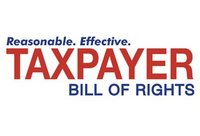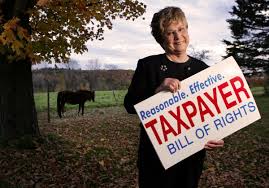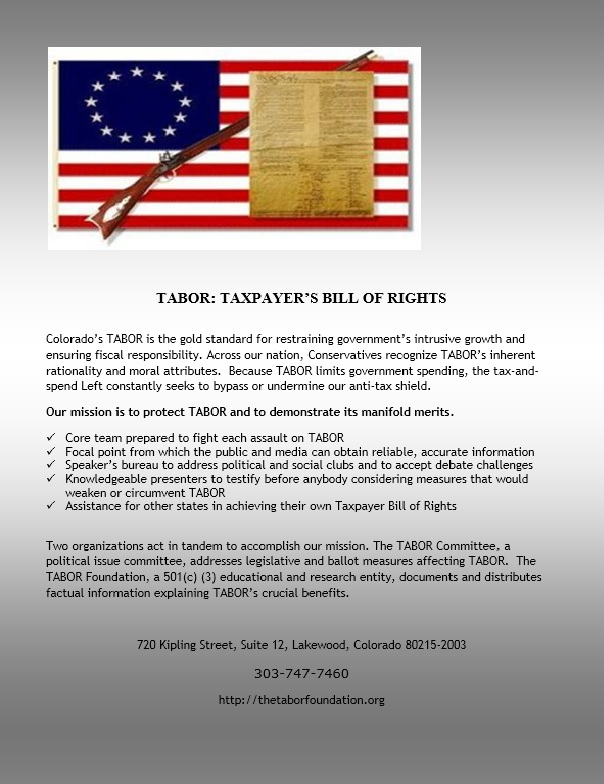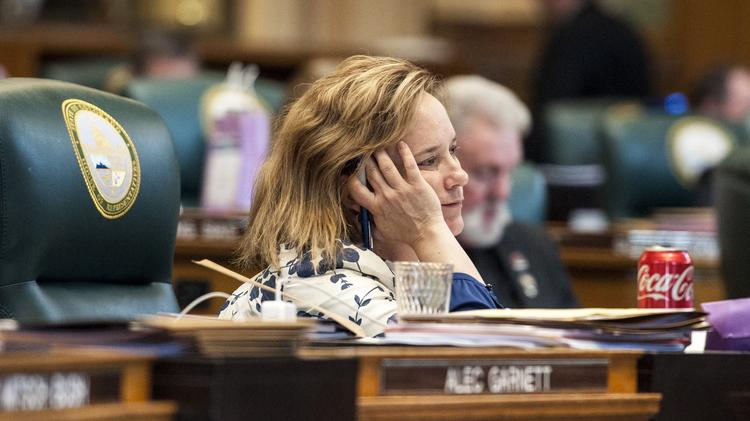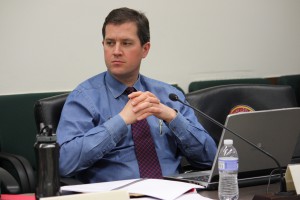TABOR Committee featured at national ALEC conference in Denver
Colorado’s Taxpayer’s Bill of Rights (TABOR) was in demand at the 44th Annual American Legislative Exchange Council (ALEC) meeting held at the Hyatt Convention Center in Denver at the end of July. The TABOR Committee board of directors and friends presented the case (in a three hour workshop session) showing other states how to adopt measures similar to TABOR. TABOR Committee Chairman Penn Pfiffner also addressed approximately 60 legislators and staff at a special session on July 28th concerning the importance of TABOR-like efforts in their own states.
TABOR is a Colorado constitution protection (approved by the voters of Colorado in 1992) that restrains tax increases to not greater than the sum of population growth and the rate of inflation without a vote of the people. It is the gold standard for all 50 states regarding sound fiscal responsibility. It protects the citizen’s right to be heard on tax increases that otherwise would not be subject to voter approval. It was because of TABOR that Colorado voters had the opportunity to recently reject two very large tax increases in Colorado. Amendment 66, a $1 billion tax increase proposal in 2013, and Amendment 69, a $25 billion tax increase proposal in 2016, were both soundly defeated at the ballot box by more than 60% of Colorado voters. TABOR made those votes possible.
The American Legislative Exchange Council is a nonprofit organization of conservative state legislators and private sector representatives who draft and share model state-level legislation for distribution among state governments in the United States. ALEC provides a forum for state legislators and private sector members to collaborate on model bills—draft legislation that members may customize and introduce for debate in their own state legislatures. The ALEC annual meeting included keynote presentations by former US Speaker Newt Gingrich, Education Secretary Betsy DeVos, Colorado Congressman Ken Buck, Kentucky Governor Matthew Bevin, and other national leaders.
Please visit www.thetaborfoundation.org to learn more about TABOR and how you can help protect Colorado voter’s right to be heard.
